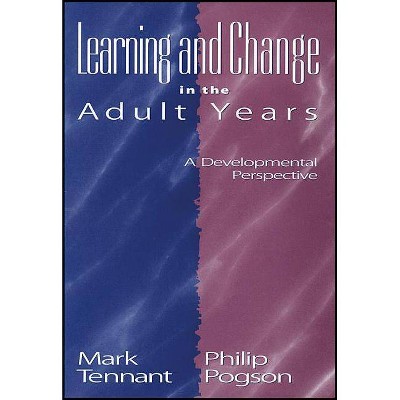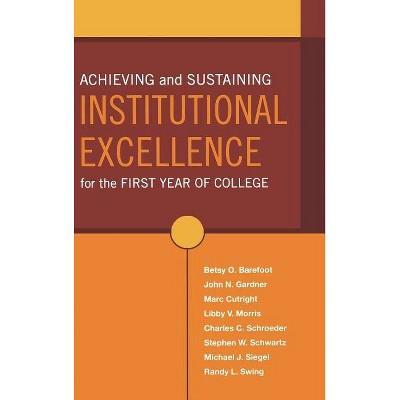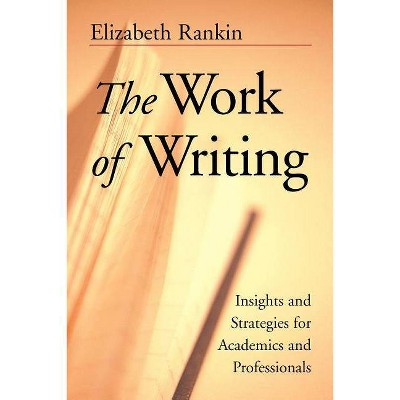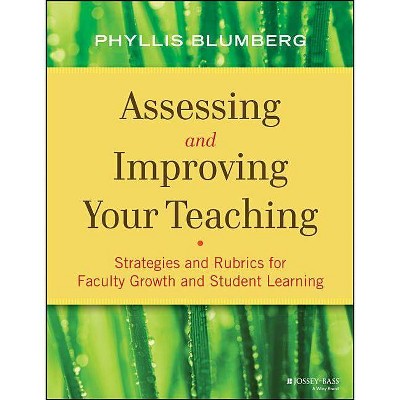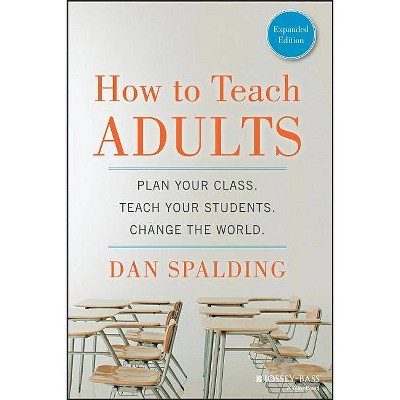Forms of Ethical and Intellectual Development in the College Years - (Jossey-Bass Higher and Adult Education (Paperback)) by William G Perry
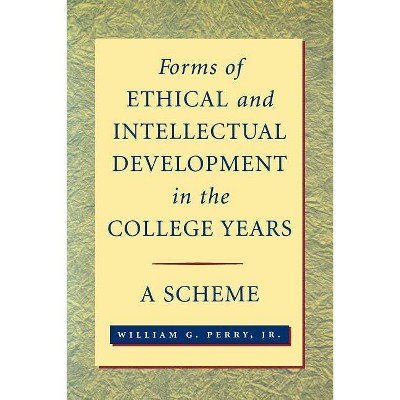
Similar Products
Products of same category from the store
AllProduct info
<p/><br></br><p><b> Book Synopsis </b></p></br></br>Since its original publication in 1970, this landmark book byWilliam Perry has remained the cornerstone of much of the studentdevelopment research that followed. Using research conducted withHarvard undergraduates over a fifteen-year period, Perry derived anAnduring framework for characterizing student development--a schemeso accurate that it still informs and advances investigations intostudent development across gAnders and cultures. <p/> Drawing from firsthand accounts, Perry traces a path from students'adolescence into adulthood. His nine-stage model describes thesteps that move students from a simplistic, categorical view ofknowledge to a more complex, contextual view of the world and ofthemselves. Throughout this journey of cognitive development, Perryreveals that the most significant changes occur in forms in whichpeople perceive their world rather than in the particulars of theirattitudes and concerns. He shows ultimately that the nature ofintellectual development is such that we should pay as muchattention to the processes we use as to the content. <p/> In a new introduction to this classic work, Lee Knefelkamp--a closecolleague of Perry's and a leading expert on college studentdevelopment--evaluates the book's place in the literature of highereducation. Knefelkamp explains how the Perry scheme has shapedcurrent thinking about student development and discusses the mostsignificant research that has since evolved from Perry'sgroundbreaking effort. <p/> Forms of Ethical and Intellectual Development in the College Yearsis a work that every current and future student servicesprofessional must have in their library.<p/><br></br><p><b> From the Back Cover </b></p></br></br>Since its original publication in 1970, this landmark book by William Perry has remained the cornerstone of much of the student development research that followed. Using research conducted with Harvard undergraduates over a fifteen-year period, Perry derived an enduring framework for characterizing student development - a scheme so accurate that it still informs and advances investigations into student development across genders and cultures. Drawing from firsthand accounts, Perry traces a path from students' adolescence into adulthood. His nine-stage model describes the steps that move students from a simplistic, categorical view of knowledge to a more complex, contextual view of the world and of themselves. Throughout this journey of cognitive development, Perry reveals, the most significant changes occur in forms in which people perceive their world rather than in the particulars of their attitudes and concerns. He shows ultimately that the nature of intellectual development is such that we should pay as much attention to the processes we use as to the content. In a new introduction to this classic work, Lee Knefelkamp - a close colleague of Perry's and a leading expert on college student development - evaluates the book's place in the literature of higher education. Knefelkamp explains how the Perry scheme has shaped current thinking about student development and discusses the most significant research that has since evolved from Perry's groundbreaking effort. Forms of Ethical and Intellectual Development in the College Years is a work that every current and future student services professional must have in their library.<p/><br></br><p><b> Review Quotes </b></p></br></br><br>William G. Perry, Jr. is unique in his influence on those individuals who teach, study, and work with America's college and university students. His work--and by that I mean his entire career and the manner in which he lived it--has influenced generations of faculty members, administrators, and those who themselves have created theories of college student development and instruction. (L. Lee Knefelkamp, Professor of Higher Education, Teachers College, Columbia University)<br><p/><br></br><p><b> About the Author </b></p></br></br>WILLIAM G. PERRY, JR. was head of the Bureau of Study Counsel, an educational research unit, at Harvard University.
Price History
Price Archive shows prices from various stores, lets you see history and find the cheapest. There is no actual sale on the website. For all support, inquiry and suggestion messages communication@pricearchive.us




